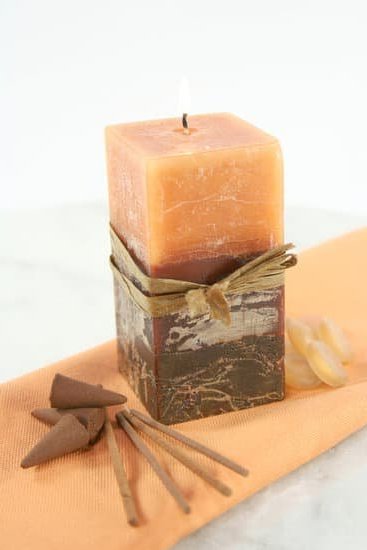Aromatherapy, a practice dating back centuries, involves using essential oils derived from plants to promote healing and overall well-being. The question of whether aromatherapy is a complementary or alternative therapy is a topic of debate in the field of holistic health. While some view it as a complementary therapy, others see it as an alternative approach to conventional medicine.
The roots of aromatherapy can be traced back to ancient civilizations such as the Egyptians, Greeks, and Romans, who used aromatic oils for medicinal and therapeutic purposes. Over time, this practice has evolved into what we now know as aromatherapy. By harnessing the power of plant extracts, aromatherapy aims to address physical, emotional, and spiritual imbalances through the sense of smell.
Complementary therapy refers to treatments used alongside conventional medicine to enhance its effectiveness and improve overall well-being. On the other hand, alternative therapy encompasses practices that may be used in place of traditional medical interventions. In the case of aromatherapy, it can be considered both complementary and alternative depending on how it is integrated into one’s healthcare routine.
What Is Complementary Therapy
Understanding Complementary Therapy
Complementary therapy is a form of treatment that is used in conjunction with conventional medicine to enhance the overall well-being of an individual. It focuses on treating the person as a whole, incorporating mind, body, and spirit. Complementary therapies are often used to manage symptoms, improve quality of life, and support the body’s natural healing processes. These therapies can include practices such as acupuncture, massage therapy, yoga, meditation, and of course, aromatherapy.
Differences From Conventional Medicine
One key difference between complementary therapy and conventional medicine is the approach to treatment. Conventional medicine typically focuses on treating specific symptoms or diseases using pharmaceuticals or surgeries. In contrast, complementary therapy takes a holistic approach by addressing the root cause of health issues and promoting overall wellness. It aims to restore balance and harmony within the body rather than just treating isolated symptoms.
Aromatherapy as a Complementary Therapy
Aromatherapy is considered a complementary therapy because it is often used alongside traditional medical treatments to support patient care. The use of essential oils derived from plants can have therapeutic effects on both physical and emotional well-being. Studies have shown that aromatherapy can help reduce stress, anxiety, pain, and improve sleep quality. By incorporating aromatherapy into healthcare settings, patients can benefit from a more comprehensive approach to healing that addresses their overall health needs.
What Is Alternative Therapy
Aromatherapy is often categorized as a form of alternative therapy, which falls under the umbrella of holistic health practices. Alternative therapy refers to healing practices that are used in place of conventional medicine or alongside it to complement traditional treatments.
It focuses on treating the individual as a whole and addressing the root causes of health issues rather than just managing symptoms. Aromatherapy utilizes essential oils extracted from plants to promote physical, mental, and emotional well-being through their aromatic properties.
One key aspect that sets alternative therapy apart from conventional medicine is its emphasis on natural remedies and non-invasive techniques. The use of aromatherapy in alternative therapy aligns with this philosophy by harnessing the therapeutic benefits of plant-based essential oils without the side effects commonly associated with pharmaceutical medications. Many individuals turn to aromatherapy as an alternative approach to common health concerns such as stress, anxiety, insomnia, headaches, and muscle pain.
While some may view aromatherapy solely as an alternative therapy due to its non-traditional methods, others argue that it can also be considered a complementary therapy when used in conjunction with conventional medical treatments. The integration of aromatherapy into healthcare settings alongside standard practices like medication and physical therapy highlights its potential to enhance overall well-being.
By understanding the role of aromatherapy within the realm of alternative therapies, individuals can make informed decisions about incorporating this practice into their holistic health routines.
| Benefits | Applications |
|---|---|
| Reduces stress & anxiety | Aromatherapy massage |
| Improves sleep quality | Aromatherapy diffusers |
| Alleviates headaches & migraines | Aromatherapy inhalation |
Comparison of Complementary and Alternative Therapy
The use of aromatherapy as a healing practice has been gaining popularity in recent years, but is aromatherapy a complementary or alternative therapy? To understand this distinction, it is essential to differentiate between the two terms. Complementary therapy refers to treatments used alongside conventional medicine to enhance the overall well-being of an individual.
These therapies are often used in conjunction with traditional medical practices to address physical, emotional, and spiritual aspects of health. On the other hand, alternative therapy involves using non-traditional methods instead of conventional medicine for treating various conditions.
Aromatherapy can be considered both a complementary and alternative therapy, depending on how it is utilized. When essential oils are used alongside standard medical treatments to support patients’ health and recovery process, it is categorized as complementary therapy.
The integration of aromatherapy into healthcare settings such as hospitals and clinics demonstrates its role in complementing traditional medical approaches. Conversely, when individuals choose to solely rely on aromatherapy for treating their health issues without conventional medical intervention, it falls under the umbrella of alternative therapy.
Research has shown that aromatherapy can have positive effects on various health conditions, including stress reduction, pain management, and improving sleep quality. Studies have indicated that certain essential oils possess properties that can alleviate symptoms associated with different ailments.
For instance, lavender oil is known for its calming effects on the nervous system and is commonly used to reduce anxiety and promote relaxation. The therapeutic benefits of aromatherapy have led many individuals to incorporate it into their wellness routines, either as a standalone treatment or in combination with other healing modalities.
| Category | Information |
|---|---|
| Definition | Aromatherapy can be both a complementary and alternative therapy |
| Scientific Evidence | Research supports the efficacy of aromatherapy in managing various health conditions |
| Common Uses | Aromatherapy is utilized for stress reduction, pain management, and improving sleep quality among other benefits |
Scientific Evidence Behind Aromatherapy
Aromatherapy, which involves the use of essential oils extracted from plants for therapeutic purposes, is a practice that has been used for centuries across various cultures. The concept of aromatherapy can be traced back to ancient civilizations such as the Egyptians, Greeks, and Romans, who recognized the healing properties of aromatic plants. In modern times, aromatherapy has gained popularity as a natural and holistic approach to wellness.
Is Aromatherapy a Complementary or Alternative Therapy?
Aromatherapy is often considered a complementary therapy rather than an alternative therapy. Complementary therapies are used alongside conventional medical treatments to enhance overall well-being and promote relaxation. These therapies focus on treating the whole person, including physical, emotional, mental, and spiritual aspects. Aromatherapy complements traditional medicine by addressing symptoms such as stress, anxiety, pain relief, and insomnia through the use of essential oils.
Scientific Research Supporting Aromatherapy
Over the years, there has been a growing body of scientific research supporting the efficacy of aromatherapy in promoting health and well-being. Studies have shown that certain essential oils have anti-inflammatory, antimicrobial, and antioxidant properties. For example, lavender essential oil has been found to reduce anxiety and improve sleep quality when used in aromatherapy practices.
Other oils like peppermint and eucalyptus have been shown to alleviate headaches and respiratory issues when diffused or applied topically. This scientific evidence helps validate the use of aromatherapy as a complementary therapy in healthcare settings.
Common Uses of Aromatherapy
Aromatherapy, whether considered a complementary or alternative therapy, has become increasingly popular for its potential health benefits. This practice involves the use of essential oils extracted from plants to promote overall well-being and enhance both physical and emotional health. The versatility of aromatherapy allows for various applications, making it a convenient and accessible option for individuals seeking natural remedies.
Here are some common uses of aromatherapy for health benefits:
- Relaxation and Stress Relief: One of the most well-known benefits of aromatherapy is its ability to promote relaxation and reduce stress. Essential oils like lavender, chamomile, and bergamot are often used to create a calming atmosphere and alleviate anxiety.
- Improved Sleep Quality: Aromatherapy can also be effective in improving sleep quality by creating a soothing environment conducive to rest. Oils such as clary sage, valerian, and cedarwood are known for their sedative properties.
- Pain Management: Certain essential oils have analgesic properties that can help in managing pain and discomfort. Peppermint oil, eucalyptus oil, and rosemary oil are commonly used for relieving headaches, muscle aches, and joint pain.
In addition to these common uses, aromatherapy is also utilized for enhancing mental clarity, boosting energy levels, improving digestion, and supporting the immune system. Whether diffused in the air through a vaporizer or diluted with carrier oils for topical application, aromatherapy offers a holistic approach to wellness that complements conventional medical practices. Ultimately, the diverse range of uses highlights the adaptability of aromatherapy in promoting overall health and well-being.
Aromatherapy in Practice
When it comes to incorporating aromatherapy into healthcare settings, the possibilities are vast. From hospitals to nursing homes, this holistic approach to wellness is making a significant impact on patients’ well-being. Here are some real-life examples of how aromatherapy is being utilized in various healthcare settings:
- Hospitals: Many hospitals have integrated aromatherapy into their patient care protocols to help alleviate symptoms such as pain, anxiety, and nausea. For example, diffusing lavender essential oil in labor and delivery rooms has been shown to reduce pain and anxiety levels for expectant mothers.
- Nursing Homes: Aromatherapy is also being used in nursing homes to improve the quality of life for residents. By incorporating scents like citrus or peppermint into common areas, residents may experience increased alertness, improved mood, and reduced agitation.
- Cancer Centers: Patients undergoing cancer treatment often experience symptoms such as fatigue, nausea, and depression. Aromatherapy has been found to be beneficial in managing these side effects. For instance, using ginger essential oil can help alleviate nausea in chemotherapy patients.
Considering these examples, it is evident that aromatherapy plays a valuable role in enhancing the overall well-being of individuals in healthcare settings. Whether used as a complementary therapy alongside conventional treatments or as an alternative therapy for certain conditions, the power of scent should not be underestimated in promoting healing and relaxation.
Ultimately, when answering the question “Is aromatherapy a complementary or alternative therapy?”, it becomes apparent that it can be both. Depending on the context and purpose of its use, aromatherapy can complement traditional medical practices or serve as an alternative approach to holistic healing. Its versatility and effectiveness make it a valuable addition to healthcare environments seeking to enhance patient care and improve outcomes.
Conclusion
In conclusion, aromatherapy can be classified as both a complementary and alternative therapy depending on how it is used in conjunction with traditional medicine. Complementary therapy refers to treatments that are used alongside conventional medical treatments to enhance their effectiveness or alleviate side effects. In this context, aromatherapy is often used as a supportive measure to aid in relaxation, stress relief, pain management, and overall well-being.
On the other hand, alternative therapy involves using non-conventional treatments in place of conventional medicine. While some may choose to solely rely on aromatherapy for their health needs, it is important to note that it is not a replacement for professional medical advice or treatment. Instead, aromatherapy can be seen as a holistic approach to health and wellness that complements traditional medical practices by addressing physical, mental, and emotional aspects of health.
Ultimately, the potential impact of aromatherapy on overall well-being lies in its ability to promote relaxation, reduce stress and anxiety, improve sleep quality, and enhance mood. Whether utilized as a complementary therapy alongside traditional medicine or as an alternative therapy in holistic health practices, aromatherapy offers a natural and non-invasive way to support both physical and emotional health.
Its growing popularity and the increasing body of scientific evidence supporting its benefits make aromatherapy a valuable addition to personalized healthcare routines aimed at achieving balance and wellness.
Frequently Asked Questions
Is Aromatherapy an Alternative Therapy?
Aromatherapy is indeed considered an alternative therapy that uses essential oils extracted from plants to promote health and well-being. These essential oils are believed to have various therapeutic properties that can positively impact physical and emotional health.
What Is Considered Aromatherapy?
Aromatherapy involves the use of essential oils either through inhalation, diffusion, or topical application. These essential oils are believed to have different effects on the body and mind, such as reducing stress, improving sleep quality, relieving pain, enhancing mood, and boosting immunity.
What Type of CAM Is Aromatherapy?
Aromatherapy is classified as a type of complementary and alternative medicine (CAM) due to its holistic approach in promoting overall wellness. It is often used in conjunction with conventional medical treatments to help manage symptoms or improve quality of life for individuals dealing with various health issues.

Are you looking for a natural way to improve your health and wellbeing?
If so, aromatherapy may be the answer for you.





